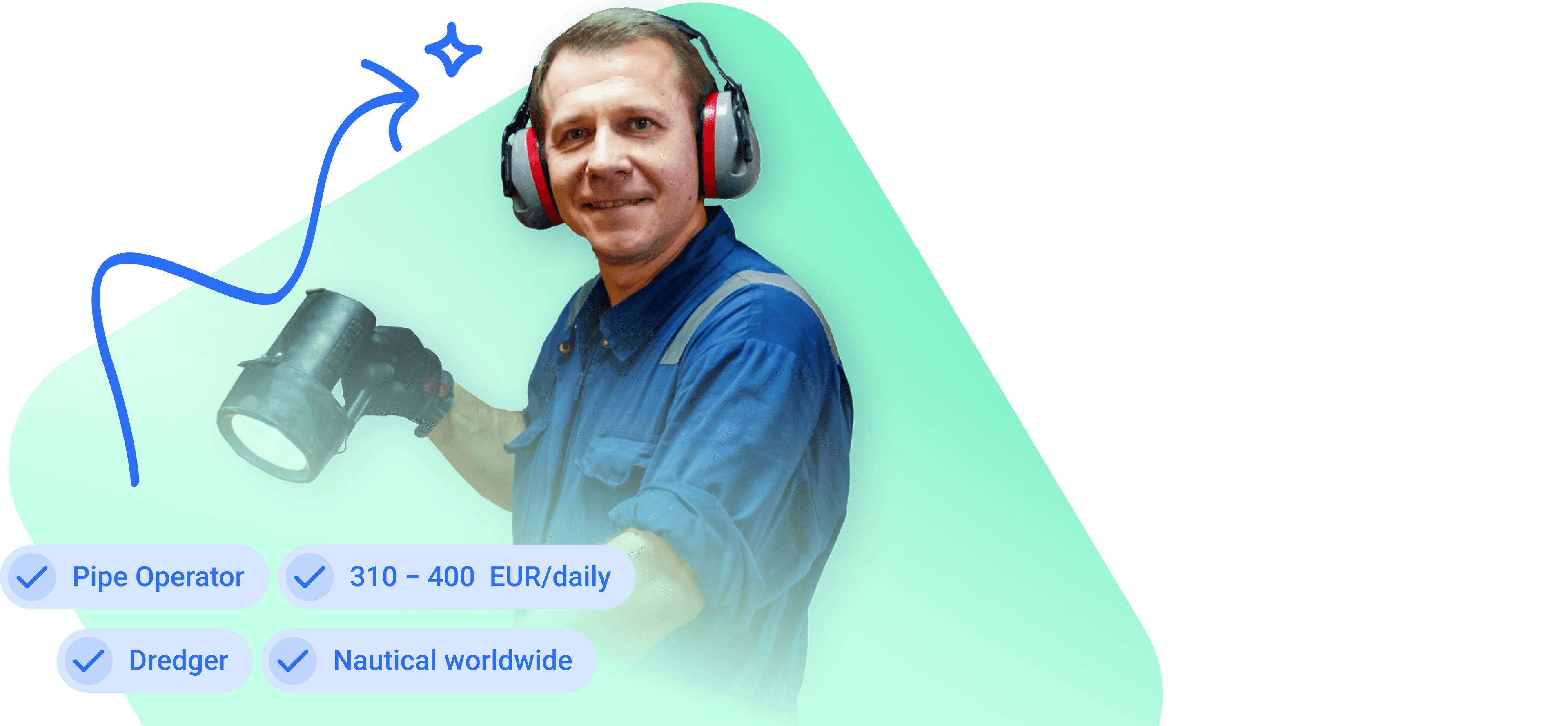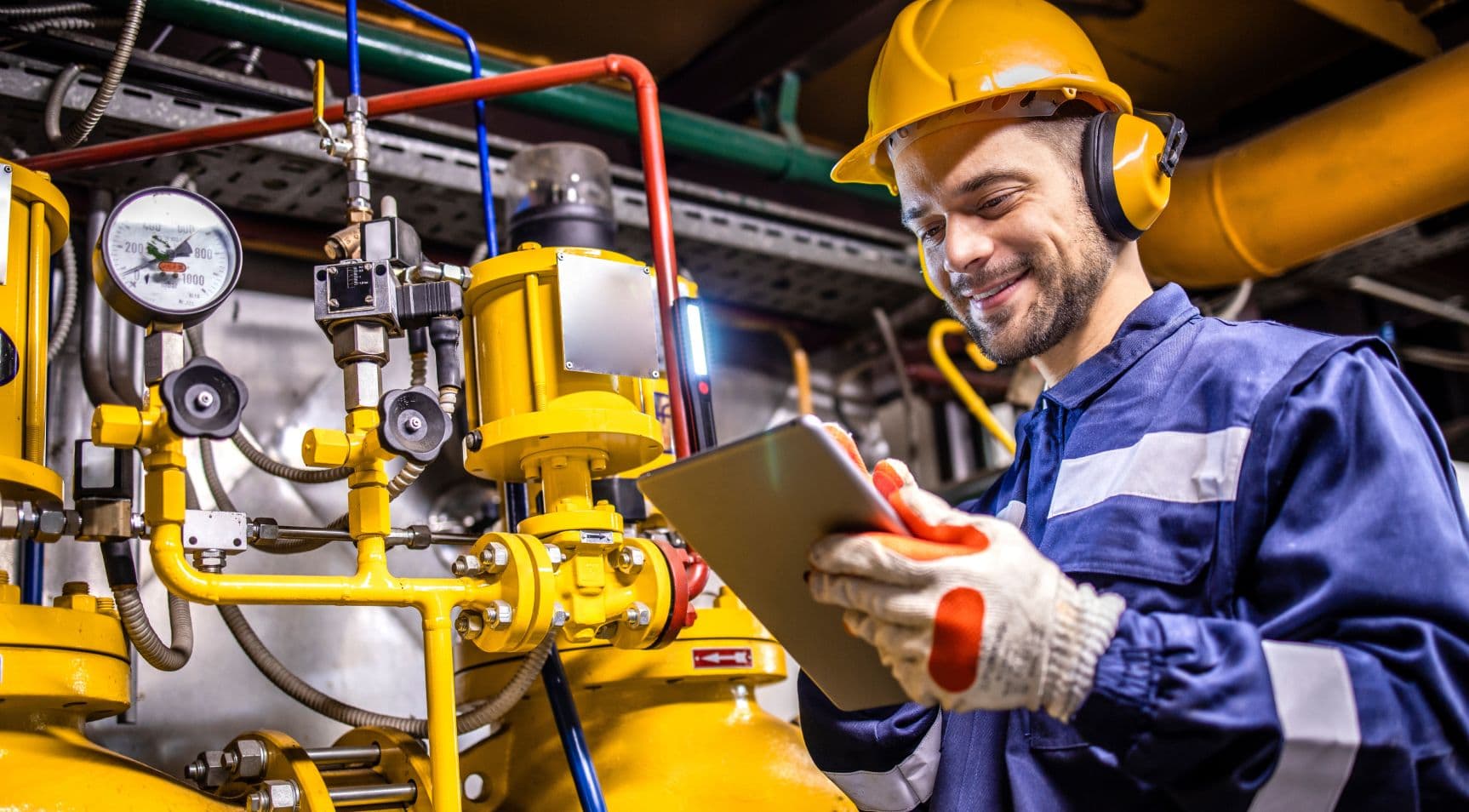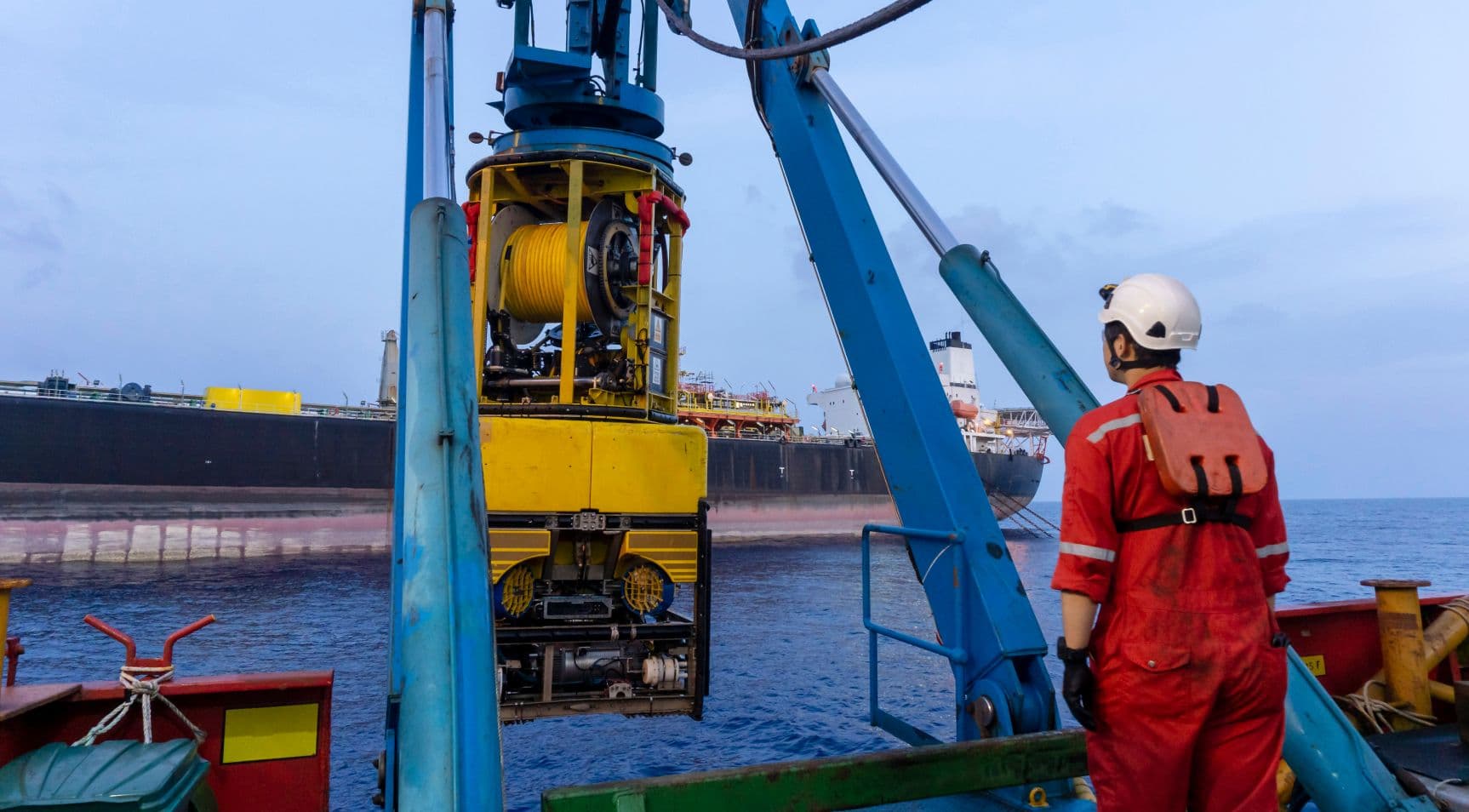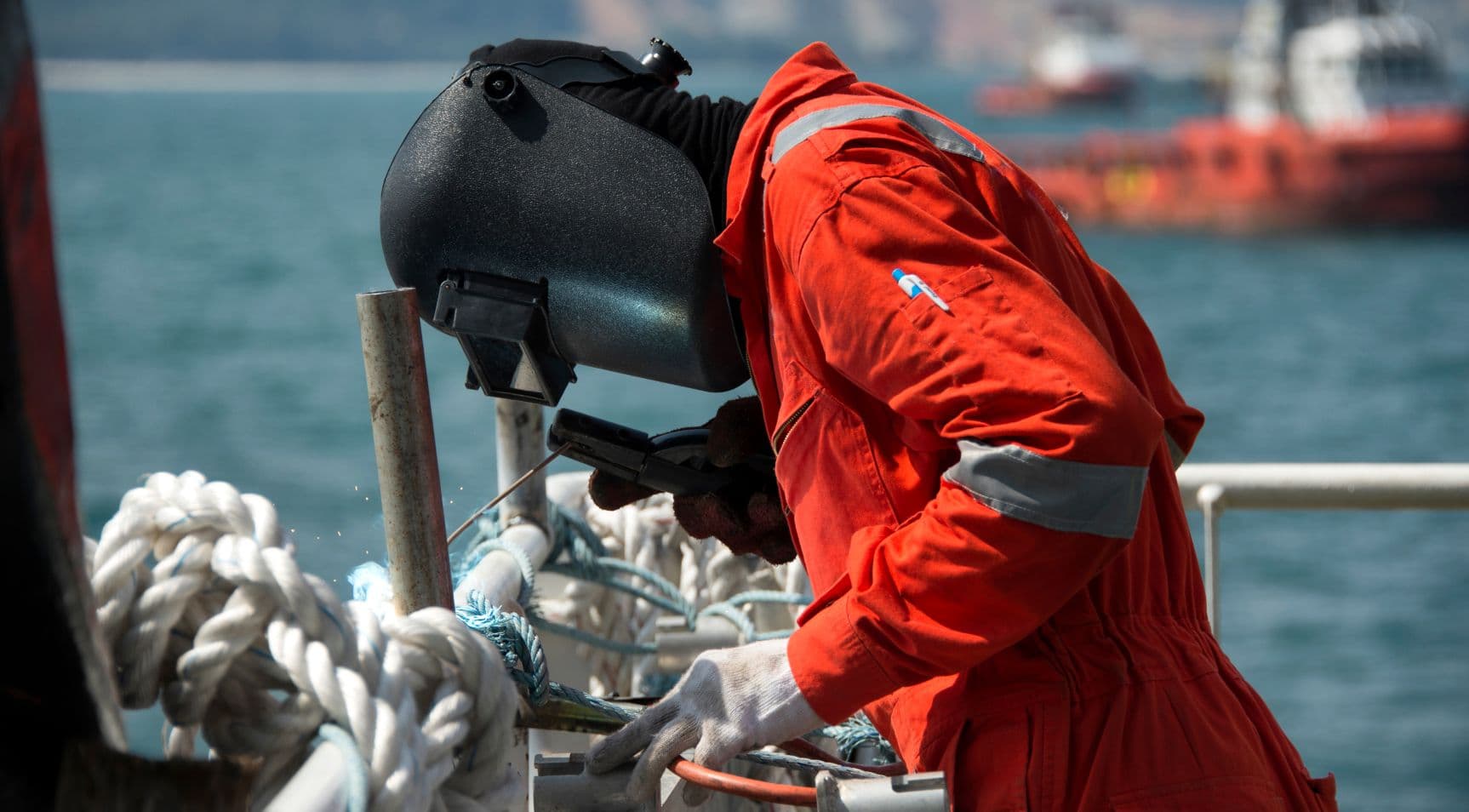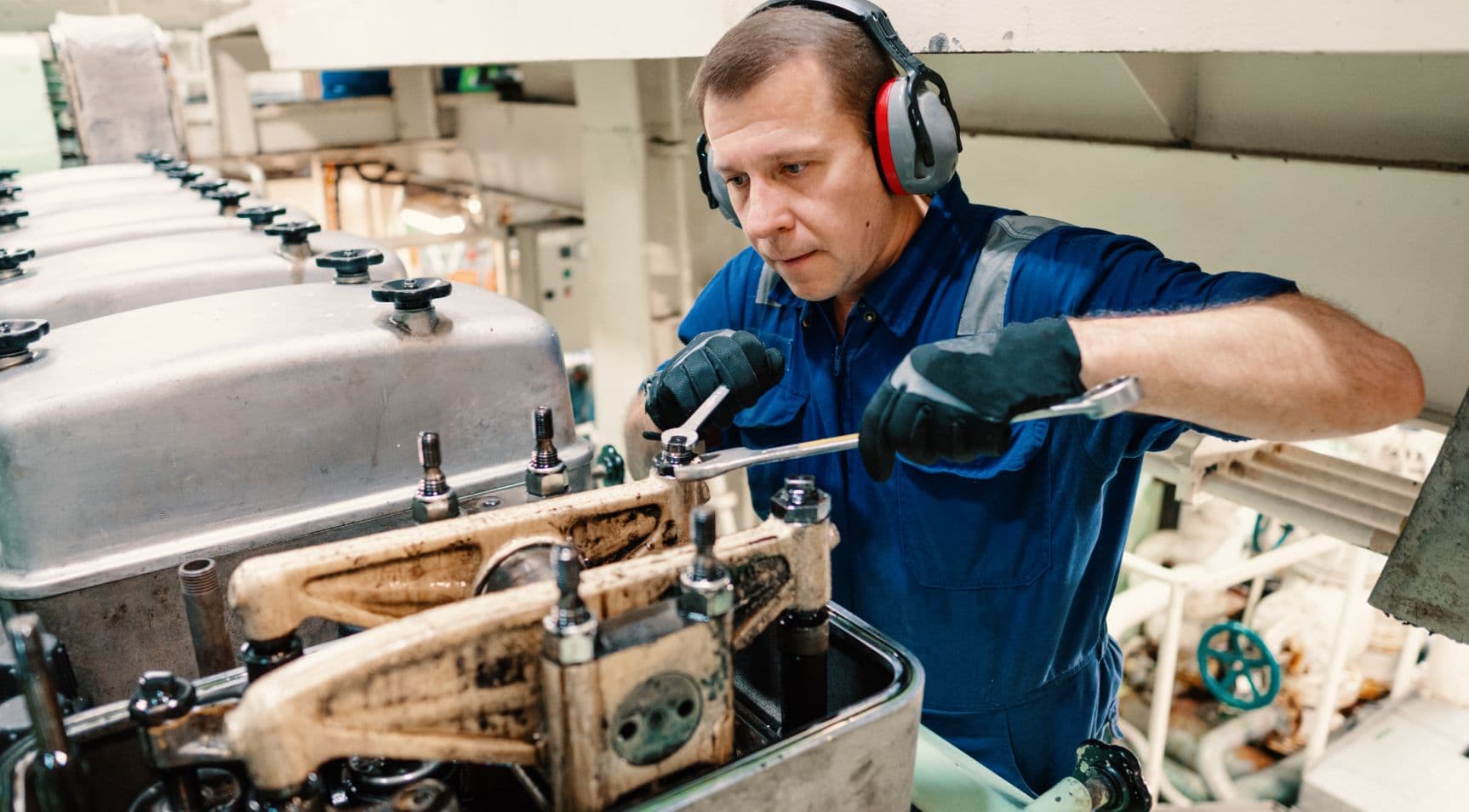Specialized Technical Roles in the Maritime Industry
The maritime industry is a complex ecosystem requiring various specialized technical roles that contribute to the seamless operation and construction of marine and offshore infrastructure. These professionals are key to the efficient execution of tasks ranging from maintenance and repair to operations and oversight, ensuring safety, reliability, and effectiveness in maritime environments.
Pipe Operator
What Does a Pipe Operator Do?
A Pipe Operator in the maritime industry is primarily responsible for the maintenance, assembly, and installation of pipe systems on ships and offshore platforms. This role involves reading and interpreting blueprints, using a variety of tools to cut and shape pipes, ensuring all fittings are sealed correctly to prevent leaks, and conducting regular inspections and maintenance. The role is critical in maintaining the functionality of essential systems such as hydraulic, pneumatic, and other fluid transfer systems.
Path to Becoming a Pipe Operator
To become a Pipe Operator, candidates typically need a combination of formal education and hands-on experience. Starting with a high school diploma or equivalent, prospective Pipe Operators often pursue vocational training or an associate’s degree in a related field such as mechanical engineering technology or pipefitting. Apprenticeships or on-the-job training are also common pathways, providing practical experience. Certifications, though not always required, can enhance job prospects and credibility in the field.
Pipe Operator Career Opportunities and Salaries
Career opportunities for Pipe Operators are prevalent across various sectors of the maritime industry, including shipbuilding, repair, and offshore oil and gas exploration. The role may advance into supervisory positions or into specialized areas of piping work, such as cryogenic or high-pressure systems. Salaries for Pipe Operators vary based on experience, location, and the specific industry, but typically range from approximately $40,000 to $60,000 annually, with potential for higher earnings in supervisory or advanced technical positions.
Rigger and Rigger Foreman
Roles and Responsibilities of Riggers
Riggers in the maritime industry are responsible for setting up and repairing rigging for the lifting and moving of equipment, vehicles, and machinery aboard ships and on offshore platforms. The role requires precision and an understanding of load dynamics to ensure safe and efficient operations. Rigger Foremen oversee these activities, ensuring that all rigging operations comply with safety regulations and project specifications. They also manage teams of riggers, coordinate tasks, and troubleshoot any issues that arise during operations.
Certifications Required
Riggers and Rigger Foremen typically need to hold specific certifications that affirm their expertise in rigging techniques and safety. These include the Certified Rigger and Signalperson Certification, and advanced certifications for more complex rigging operations. Training programs accredited by bodies such as the National Commission for the Certification of Crane Operators (NCCCO) or similar in other countries are crucial for obtaining these certifications. Continuous education and recertification are required to maintain these credentials and stay updated with safety protocols and new technologies.
Salary Insights for a Rigger
The salary for a Rigger in the maritime industry can start from approximately $35,000 to $50,000 annually, depending on experience and the complexity of the job. Rigger Foremen, due to their higher level of responsibility and oversight, can expect salaries in the range of $50,000 to $75,000 annually. Salaries can vary widely based on the location, size of the company, and the specific nature of the projects handled.
Scaffolder and Scaffolder Supervisor
Scaffolder Job Description
Scaffolders in the maritime industry play a crucial role in providing temporary structures used in the construction, maintenance, and repair of ships and offshore installations. These structures must be sturdy, reliable, and adaptable to different configurations, often in challenging environments. Scaffolders erect, alter, and dismantle scaffolding, ensuring all platforms are safe and secure. Scaffolder Supervisors oversee these operations, ensuring compliance with safety standards and coordinating the placement and removal of scaffolding materials.
Skills and Certifications for a Scaffolder
Scaffolders must have a solid understanding of safety regulations and physical stamina. They typically require a certification in scaffolding, which covers safety practices, the correct handling of materials, and emergency procedures. These certifications can be obtained through courses offered by accredited training organizations specific to the construction and maritime industries. Leadership skills and the ability to supervise are essential for Scaffolder Supervisors.
Scaffolder Career Path and Salary Expectations
Entry-level Scaffolders can expect to earn between $30,000 and $45,000 annually, while experienced Scaffolders and Scaffolder Supervisors can see salaries ranging from $45,000 to over $60,000. Progression in this career often depends on gaining additional certifications, years of experience, and the ability to manage larger teams and more complex projects.
These sections not only detail what these positions entail but also guide potential job seekers on how to qualify and progress in these roles, enhancing the depth and utility of your webpage for users and search engines alike.
Maritime Tension Operator
Role Overview of a Martime Tension Operator
The Maritime Tension Operator plays a crucial role in managing the tension on cables and lines during offshore operations, such as drilling and towing. Their expertise ensures that the operational integrity of maritime projects is maintained, preventing accidents and equipment damage due to improper tension levels.
Maritime Tension Operator Qualifications
Aspiring Tension Operators need to complete specialized training in cable tension management, often provided through maritime academies or technical training centers. Key qualifications also include a solid understanding of mechanical systems and safety protocols. Certifications in heavy equipment operation can enhance a candidate’s qualifications.
Salary and Career Progression for a Maritime Tension Operator
Entry-level Tension Operators can expect salaries starting from approximately $45,000 annually, with potential to grow to $65,000 or more as they gain experience and take on more complex projects. Career progression may lead to supervisory roles, where the knowledge of maritime operations and cable management are critical.
Maritime Tower Operator
Responsibilities of a Maritime Tower Operator
The Maritime Tower Operator is responsible for controlling tower and crane operations on maritime vessels and offshore platforms. They manage the lifting and movement of heavy loads, ensuring all operations are conducted safely and efficiently. This role requires a keen eye for detail and strict adherence to safety procedures.
Educational Requirements for a Maritime Tower Operator
Candidates typically require a high school diploma followed by vocational training in heavy machinery operation. Further certifications in tower operation, offered by recognized maritime training institutions, are essential. On-the-job training under experienced operators is also common practice.
Opportunities for Advancement
Tower Operators can advance to become Chief Tower Operators or move into managerial positions where they oversee multiple cranes and training programs. With experience, salaries can range from $50,000 to $70,000 annually, reflecting the responsibility and expertise required in these roles.
Maritime Winch Operator
Job Functions of a Maritime Winch Operator
The Maritime Winch Operator is essential for managing the winches on ships and offshore platforms, which are critical for lifting, moving, and securing heavy loads. This role includes operating and maintaining winch equipment, monitoring load weights, and ensuring all operations adhere to safety standards. Winch Operators must be adept at troubleshooting mechanical issues and maintaining precise control under varying conditions.
Becoming a Winch Operator
To embark on a career as a Winch Operator, individuals typically start with a high school diploma followed by specialized training in mechanical operations, often available at vocational schools or through maritime academies. Practical experience, such as apprenticeships in maritime or mechanical fields, is highly valuable. Certifications related to equipment operation and safety can greatly enhance employability.
Maritime Winch Operator Compensation and Growth
Entry-level Winch Operators can expect to earn from $35,000 to $50,000 annually. With experience and additional certifications, the salary can increase, and opportunities for advancement into supervisory roles or specialized operational positions become available. Experienced Winch Operators can earn upwards of $60,000 per year, especially in offshore or advanced maritime operations.
ROV Operations in the Maritime Industry
ROV (Remotely Operated Vehicle) operations are pivotal in the maritime industry, particularly for underwater exploration, maintenance, and construction. These sophisticated machines provide crucial capabilities in environments that are otherwise inaccessible to humans. The roles within ROV operations require specialized knowledge and skills to navigate, operate, and manage these advanced technological tools.
ROV Pilot
Role Specifics of a ROV Pilot
An ROV Pilot commands the remotely operated vehicles during underwater operations, ranging from exploration to repair and recovery tasks. The pilot's duties include maneuvering the ROV, monitoring environmental data, executing precise tasks via robotic arms, and ensuring the integrity of the vehicle's systems through careful operation. ROV Pilots must understand complex electronic, hydraulic, and mechanical systems to optimize the performance and safety of the operations.
Training and Certification for a ROV Pilot
Becoming an ROV Pilot requires a blend of technical education and specific training in ROV operation. Candidates often start with a background in electronics, mechanics, or similar fields, and then pursue specialized training offered by maritime academies or commercial training facilities that provide certifications in ROV piloting. These programs typically cover underwater navigation, electronics, robotics, and operational safety. Ongoing certification and training updates are essential due to the rapidly evolving technology in this field.
ROV Pilot Salary Range and Career Opportunities
The salary for an ROV Pilot can range significantly based on experience, the complexity of the operations, and the employer. Starting salaries for ROV Pilots are usually around $60,000 per year, with experienced pilots earning upwards of $100,000 annually. Career opportunities in ROV operations are expanding, with demand in industries such as offshore oil and gas, underwater salvage, and scientific research. Advancement can include roles such as ROV Supervisor or Operations Manager, overseeing multiple vehicles and pilots.
ROV Supervisor
ROV Supervisory Roles
The ROV Supervisor holds a critical leadership position within maritime ROV operations. This role involves overseeing the deployment and operation of remotely operated vehicles, managing pilot teams, and ensuring compliance with safety and technical standards. Responsibilities also include planning and executing missions, troubleshooting complex issues, and maintaining operational logs and reports for each project.
Skills and Experience Needed for a ROV Supervisor
Essential qualifications for an ROV Supervisor include extensive experience as an ROV Pilot, strong leadership abilities, and a deep understanding of electronic and mechanical systems. Additional skills in project management, team coordination, and effective communication are crucial. Most employers require candidates to have formal training in electronic or mechanical engineering, along with specialized certifications in advanced ROV operations.
ROV Supervisor Career Outlook and Earnings
The career outlook for ROV Supervisors is favorable, particularly in industries like offshore oil and gas, marine conservation, and undersea exploration. With growing reliance on underwater technologies, the demand for skilled supervisors is increasing. Salaries for ROV Supervisors typically start around $80,000 and can exceed $120,000 annually, depending on the complexity of the operations and the individual's experience.
ROV Technician
Technical Duties of a ROV Technician
An ROV Technician specializes in the maintenance and repair of remotely operated vehicles, ensuring they are operational, safe, and prepared for various underwater tasks. Their duties include conducting pre- and post-mission checks, performing regular maintenance, diagnosing technical problems, and repairing electronic, hydraulic, and mechanical systems. Technicians also support pilots during operations by managing technical aspects of the ROV.
Educational Pathways to become a ROV Technician
To become an ROV Technician, individuals typically need an associate degree or certificate in electronics, mechanics, or a related field, combined with specific training on ROV systems. Many professionals also pursue additional certifications in areas like hydraulic systems or advanced electronics, which are offered through professional maritime training centers.
ROV Technician Job Market and Salaries
The job market for ROV Technicians is robust, driven by the increasing use of ROV systems in various sectors, including oil and gas, military, environmental research, and maritime infrastructure. Entry-level ROV Technicians can expect salaries ranging from $50,000 to $65,000 per year, with experienced technicians earning up to $90,000 or more. Opportunities for advancement often include transitioning to supervisory roles or specializing in complex ROV systems.
Engineering Roles in the Maritime Industry
The engineering sector within the maritime industry is vital for the construction, maintenance, and repair of ships and offshore structures. Among these engineering roles, welders play an indispensable part, ensuring the integrity and safety of maritime structures through their specialized skills.
Maritime Welder
Detailed Job Description of a Maritime Welder
Maritime Welders perform critical welding tasks that are essential for the construction and repair of ships, submarines, and offshore platforms. These professionals work in various environments, including shipyards, docks, and even underwater settings. The job involves different types of welding techniques such as shielded metal arc welding (SMAW), gas tungsten arc welding (GTAW), and flux-cored arc welding (FCAW), each suitable for different materials and conditions. Maritime welders must be proficient in reading blueprints and understanding structural requirements to ensure strong and safe welds.
Requirements and Certifications to become a Maritime Welder
To become a Maritime Welder, individuals must complete a vocational training program in welding or a similar discipline. Following training, obtaining certifications from recognized bodies such as the American Welding Society (AWS) is crucial. These certifications often require passing practical and theoretical exams that assess a welder’s skills and knowledge. Additionally, welders working offshore or underwater may need specific certifications like the AWS D3.6M Underwater Welding Code for hyperbaric welding.
Maritime Welder Salary Expectations and Career Growth
The salary for Maritime Welders can vary widely based on experience, certifications, and the complexity of the projects they work on. Entry-level welders might start around $40,000 annually, while experienced welders with specialized skills, particularly those in offshore or underwater welding, can earn upwards of $75,000 or more. Career growth opportunities include advancing to welding inspectors, supervisors, or moving into higher-paid specialties within welding.
Construction and Management in the Maritime Industry
In the maritime sector, construction and management roles are critical for ensuring that projects are executed efficiently and safely. These roles involve overseeing the construction of ships and maintenance of maritime equipment, as well as managing the teams that perform these tasks.
Senior Mechanic in Maritime Operations
Mechanical Responsibilities
The Senior Mechanic in maritime operations oversees the maintenance and repair of mechanical systems aboard ships and offshore platforms. Responsibilities include diagnosing mechanical issues, conducting regular inspections, and leading repair projects. This role demands an in-depth understanding of engine systems, hydraulics, and other crucial maritime machinery.
Senior Mechanic Skills and Qualifications
Essential skills for a Senior Mechanic include advanced mechanical aptitude, problem-solving abilities, and strong leadership skills. Qualifications typically include a degree or diploma in mechanical engineering or a related field, supplemented by specific certifications in maritime mechanics. Experience in maritime environments is highly valued, as it provides practical knowledge of industry-specific challenges and requirements.
Advancement Opportunities and Pay Scale for a Senior Mechanic
Career advancement for a Senior Mechanic can involve moving into higher managerial roles such as Chief Engineer or Maintenance Manager. These positions offer increased responsibility, including budget management and strategic planning. Salaries for Senior Mechanics start around $55,000 and can go up to $90,000 or more, depending on experience, location, and the specific responsibilities of the role.
